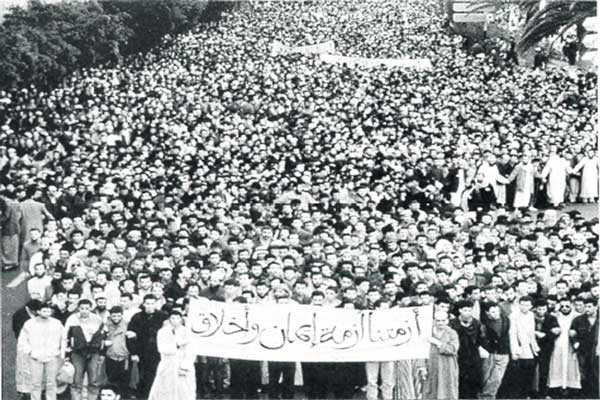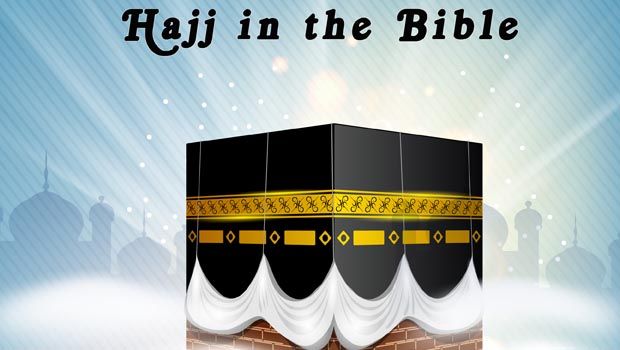“Just as We have sent among you a messenger from yourselves reciting to you Our verses and purifying you and teaching you the Book and wisdom and teaching you that which you did not know” (Qur’an 2:151).
In this verse, Allah SWT tells us that Muhammad (s) was sent to benefit humanity through the teachings of Qur’an and sunnah. This is further illustrated in a hadith. Abu Musa narrated that the Prophet (s) said, “The example of guidance and knowledge with which Allah has sent me is like abundant rain falling on the earth some of which was fertile soil that absorbed rainwater and brought forth vegetation and grass in abundance. Another portion of it was hard and held the rainwater and Allah benefited the people with it and they utilized it for drinking, making their animals drink from it, and to irrigate the land for cultivation. And a portion of it was barren which could neither hold the water nor bring forth vegetation. The first is the example of the person who comprehends Allah’s religion and gets benefit from that which Allah has revealed through me; and learns and then teaches it to others. The last example is that of a person who does not care about it and does not take Allah’s guidance revealed through me” (Bukhari).
It is clear from the hadith that we are meant to learn from the Prophet and whatever we comprehend and get benefit from when learning the principles and precepts of Islam, we are then to share with others by teaching them what we know. It benefits us to investigate the ways by which the Prophet taught his companions. In fact, there were many different teaching techniques that Prophet Muhammad (s) utilized. Following are just a few examples:
• The Prophet would sometimes repeat something three times. One example is the hadith narrated by Abu Shuraih: “The Prophet said, ‘By Allah, he does not believe! By Allah, he does not believe! By Allah, he does not believe!’ It was said [by one individual listening], “Who is that, O Allah’s Apostle?” He (peace be upon him) said, “That person whose neighbor does not feel safe from his evil.”
• Another technique that he would often utilize effectively was asking a question to pique the interest and curiosity of the listeners. An example is when the Prophet asked his companions, “What would be the situation of someone who has a river at his door and every day, five times a day, he comes out and he takes a bath in that river? At the end of the day would he have any dirt on himself?” They responded, “There would be no dirt on him, O messenger of Allah.” Then the Prophet said, “Similarly there are the five prayers cleansing the person in this way.”
• In the above hadith, the Prophet not only used a question to bring the listener’s mind to attentiveness, he also used an analogy — making a similarity between the five daily prayers as a cleansing of heart and soul to the river that cleanses the body. The hadith cited above about abundant rain falling on the earth also uses analogy to make clear the points.
• Just as the Prophet used analogy to illustrate a point verbally, he also used drawing or illustration to make a point graphically. Once the Prophet drew a straight line through the sand and then drew lines to the right and lines to the left of the first line. Then while the people were looking intently at the drawing, he recited the verse, “And verily, this is My Straight Path, so follow it, and follow not [other] paths, for they will separate you away from His Path” (Qur’an 6:153).
• In other instances, he illustrated his point using his hands. He said, “I and the one who takes care of the orphans are in paradise, like this” (Bukhari), and as he was speaking, he interlaced his fingers.
• Using daily living experiences as opportunity to instruct, the Prophet (s) once was traveling with some companions and when it was time to prepare food, he asked them to slaughter a sheep. One man said he would do that, another said he would skin it, and a third said he would cook it. Then the messenger of Allah said, “I will collect wood for the fire.” They said, “No, we will do that work for you.” The Prophet answered, “I know that you can do it for me, but I hate to be privileged. Allah hates to see a servant of his privileged above others.” And the Prophet went and collected firewood (Khulasat-As-Siyar).
• The Prophet at times would redirect a question to a topic that is more relevant and instructive. Once a Bedouin asked the Prophet (s), “When is the hour?” [the Day of Judgment]. The Prophet said, “What have you prepared for that final hour?” The Bedouin answered, “I haven’t prepared a lot of salah and I haven’t prepared a lot of zakah but I am preparing one thing – my love for Allah and His messenger.” The Prophet (s) said, “You will be with who you love.”
For those who are interested in further researching this topic, the following book is suggested: “Prophet Muhammad — The Teacher and His Teaching Methodologies” (Ar-Rasul al-Mu’allim wa Asalibuhu fi ‘l-Ta’lim) by Shaikh Abdul Fattah Abu Ghuddah; translated by Maulana Mohamed Mahomedy.
Wisdom Too
There is another takeaway from the hadith about rainwater cited above. The first example is a person who is likened to “fertile soil that absorbed rainwater and brought forth vegetation and grass in abundance.” A person who learns Islam and outwardly exemplifies it but has not truly absorbed its lessons in a way that brings wisdom and caring cannot be likened to soil that brings forth vegetation and grass in abundance, not like the one who learns in a deep way such that he gains insight about life and himself and other people. Those who interact with others with wisdom and caring are the ones who nourish and produce benefit and good results.
An account from the life of the contemporary Shaykh Muhammad Al-Ghazali illustrates this very well. Shaykh Al-Ghazali was a scholar of classical Islamic learning and also had an extensive knowledge of modern science. He authored numerous books on Islam and was revered by so many Muslims. Muslims. He graduated from Al-Azhar University in 1941 and was active in dawah. He recounts the following incident:
“I did not like the way she was dressed when she entered my office. However, the look in her eyes revealed sadness and bewilderment that called for compassion and patience. She sat down and started sharing her concerns, hoping to find answers with me. I listened to her as long as needed. I learned that she was an Arab girl who received her education in France where she was raised. It was also clear that she barely knew Islam. I started explaining basic facts, dispelling suspicions, answering questions and refuting orientalists’ lies about Islam. I also did not forget to allude to today’s civilization and how it considers women as cheap flesh. At the end of my talk, the girl asked for a future appointment and excused herself.
Soon after, a young man – on whom qualities of outward Islamism were apparent – came storming into my office and said vehemently, ‘How come such a wicked person was admitted here?’
‘The job of a physician is to accept. He doesn’t typically see healthy people, does he?’ I replied.
‘Of course, you advised her to wear hijab!’ he added.
I said to him ‘The issue is much bigger than that. There is the foundation that has to be laid. There is the belief in Allah and the Hereafter. There is the hearing and the obeying of what was revealed in the Qur’an and the Sunnah, in addition to the pillars of worship and manners; the pillars that Islam cannot exist without …’
He interrupted me saying, ‘All of this does not mean we don’t order her to wear hijab.’
‘I wouldn’t like it if she came in a nun’s clothes while her heart is void of Allah. I taught her the basis that will help her to choose, on her own free will, to wear more decent clothes,’ I calmly replied. He tried to interrupt me again so I said firmly ‘I can’t drag Islam by its tail as you do. I lay the foundation and then start building and I usually achieve what I want with wisdom.’
Two weeks later, the girl came back. She was wearing much more decent clothes with a scarf over her head. She resumed her questions and I resumed my teaching. Then I asked, ‘Why don’t you go to the nearest mosque to your home?’ I said that but immediately I felt remorse. I remembered that mosques are closed in the face of Muslim women. The girl answered that she hated the people of religion and that she did not like to listen to them. ‘Why?’ I asked. ‘They are hard-hearted, and they treat us with contempt and scorn,’ came her swift reply.
I don’t know why I remembered Hind [Abu-Sufyan’s wife]. She was the one who chewed Hamza’s liver and fought Islam vigorously until the 8th year of Hijrah. She did not really know the Prophet. However, when she knew him and saw his lenient manners, she told him ‘I never wished someone on the face of this earth to be humiliated more than you and your family. Now, I do not wish to see someone on the face of this earth more honored than you and your family.’ The Prophet’s kindness and sympathy changed the hearts of the people around him. Now, if only the people who give dawah today would learn from their Prophet. They would learn to draw together instead of driving away, and to bring good tidings rather than to say things that repel people away from them and from Islam.’”




